Group Therapy program is a cornerstone of our addiction treatment approach. We believe in the power of shared experiences and community support to foster healing and growth. Our compassionate, evidence-based care creates a nurturing environment where individuals can connect, learn, and recover together.
Group therapy creates an intimate, supportive environment where individuals realize they’re not alone, fostering shared understanding and helping them feel truly connected.
Benefits of Group Therapy in Addiction Treatment:
Building a Support Network
Group therapy at Asana Recovery helps patients connect with others who understand their struggles, reducing the isolation often experienced during recovery. This supportive community becomes a crucial pillar of strength throughout the healing process.
Shared Learning and Insight
Our group sessions facilitate the exchange of coping strategies and recovery tools. Participants gain valuable insights from their peers’ experiences, broadening their perspective and enhancing their own recovery journey.
Accountability and Encouragement
The group setting fosters a sense of accountability, motivating individuals to stay committed to their recovery goals. Members encourage and uplift one another, creating a positive environment that reinforces resilience and determination.
Practical Coping Skills
Through guided discussions and exercises, participants develop essential skills such as effective communication, boundary setting, and emotional regulation. These practical tools are invaluable for navigating the challenges of recovery and maintaining long-term sobriety.
Cognitive Behavioral Therapy (CBT) Groups:
Our CBT groups focus on identifying and modifying thoughts and behaviors linked to addiction. Participants learn to recognize harmful patterns and develop healthier coping mechanisms.
Relapse Prevention Groups:
These specialized sessions equip individuals with strategies to avoid triggers and manage high-risk situations, strengthening their ability to maintain sobriety.
Skills-Building Groups:
We emphasize the development of crucial interpersonal skills, stress management techniques, and mindfulness practices to support overall well-being and recovery.
</br
Family-Inclusive Group Sessions:
Asana Recovery offers family group therapy options, recognizing the importance of healing family dynamics in the recovery process.
Trauma-Informed Groups:
Our trauma-informed approach integrates support for those with past trauma, addressing underlying issues that may contribute to addiction.
Call for Help Today:

If you’re currently struggling with drugs or alcohol, that addiction is life threatening. Drug and alcohol detox gets you clean or sober, using either a social approach where you quit and go through withdrawal, or a medication assisted treatment program.
Asana Recovery uses both options, which will be recommended based on the amount of substance you’re using, which substances you’re using, and your mental and physical health.
Detox normally involves staying at our clinic where you can be monitored and given the medical attention to move through withdrawal safely.
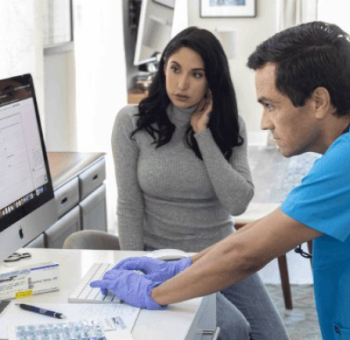
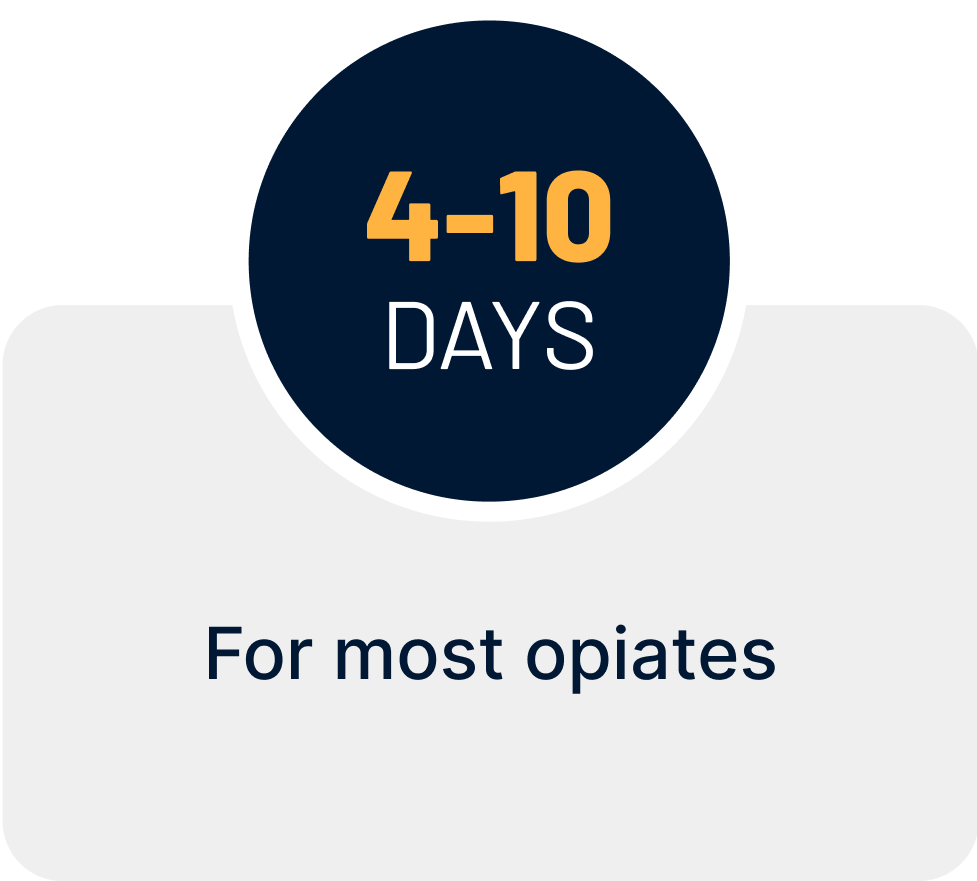
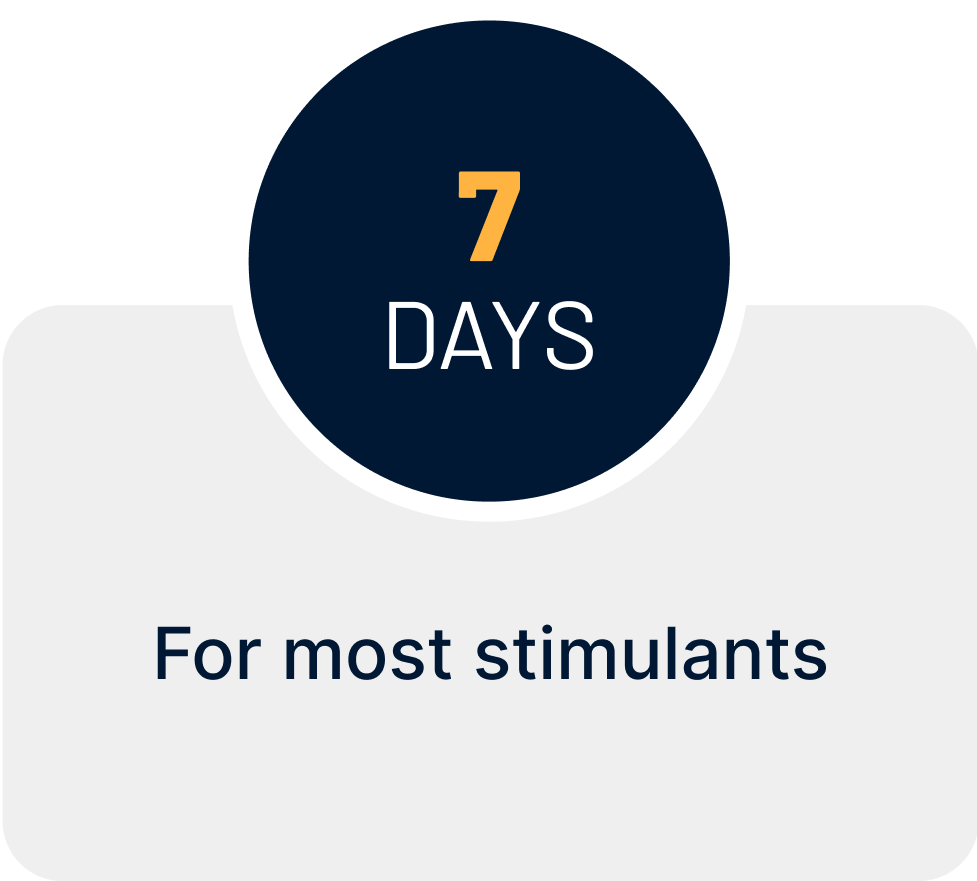
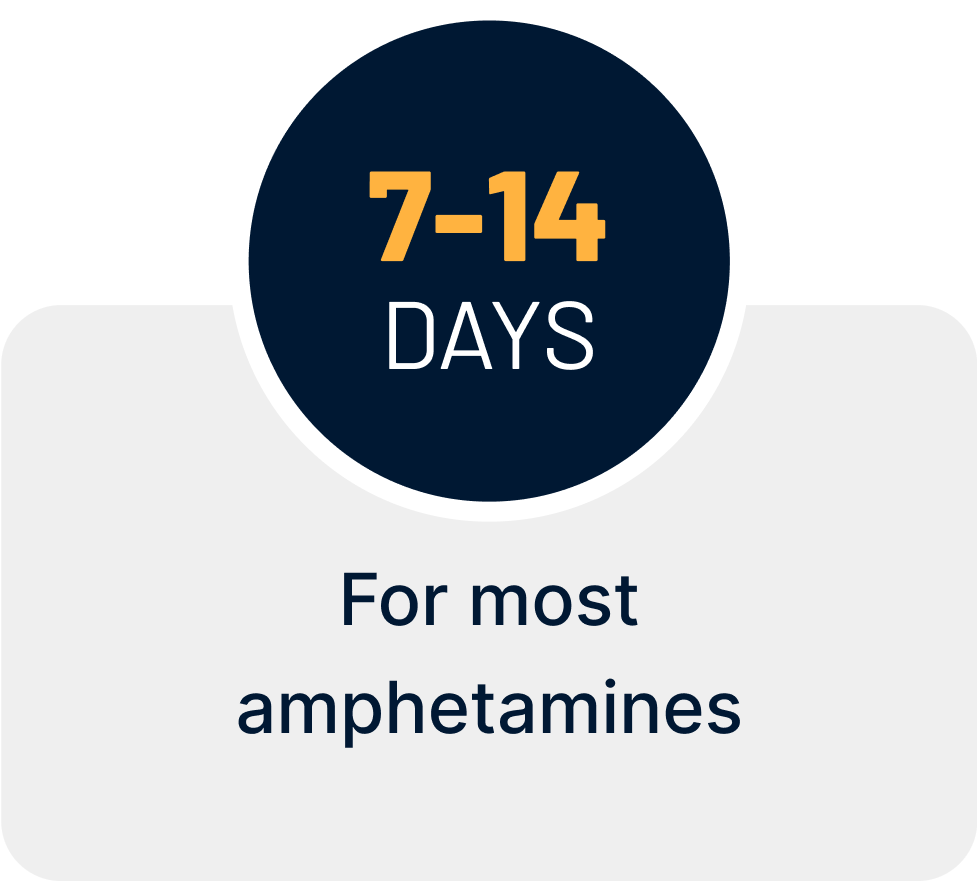


In addition, if you’re addicted to a benzodiazepine, you may be asked to go onto a tapering schedule. This can significantly extend the detox period, because you will sometimes spend several weeks on detox instead of the standard 7-14 days.
Asana Recovery provides intimate residential treatment in Orange County, California, with no more than 6 clients per facility to ensure highly personalized care. Our comprehensive treatment approach combines evidence-based therapies with holistic healing methods to address addiction and co-occurring mental health disorders
Our program utilizes multiple therapeutic modalities including Cognitive Behavioral Therapy (CBT), Dialectical Behavior Therapy (DBT), group therapy, and family therapy sessions. These core treatments are enhanced by holistic therapies such as art therapy, yoga, mindfulness practices, and recreational activities. Their biological, psychological, and social (BPS) approach creates an integrated healing environment where clients can develop essential recovery skills while receiving individualized attention from the clinical team.

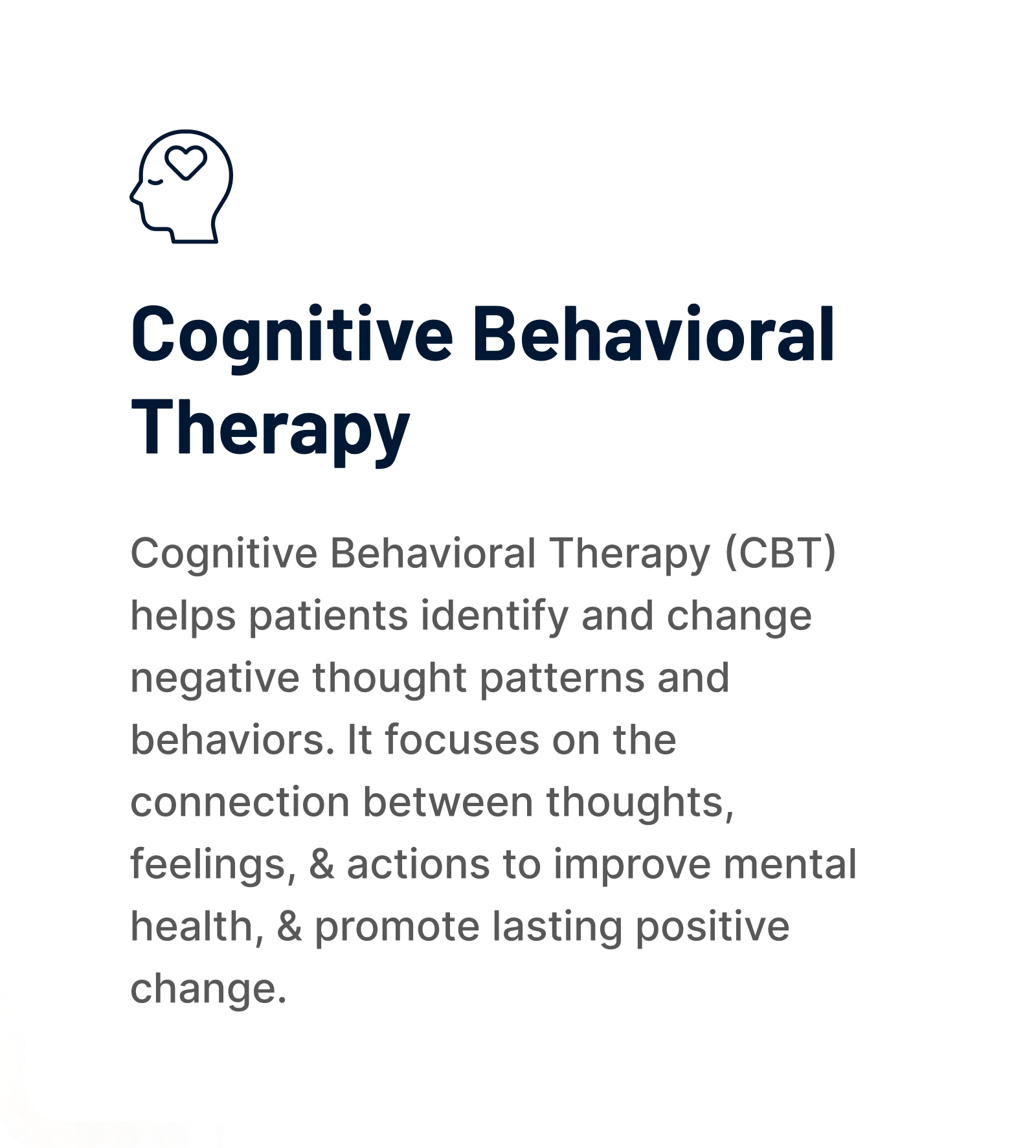

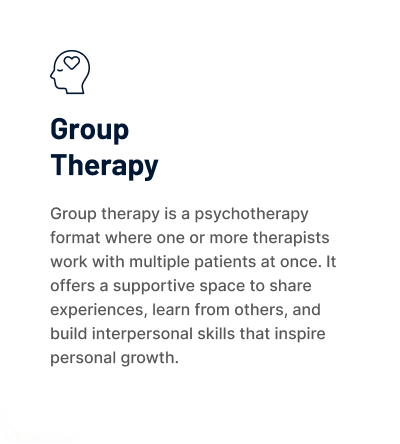
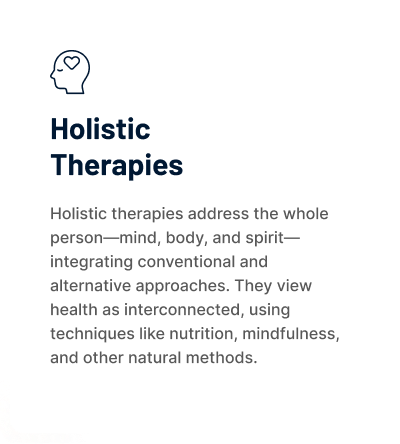

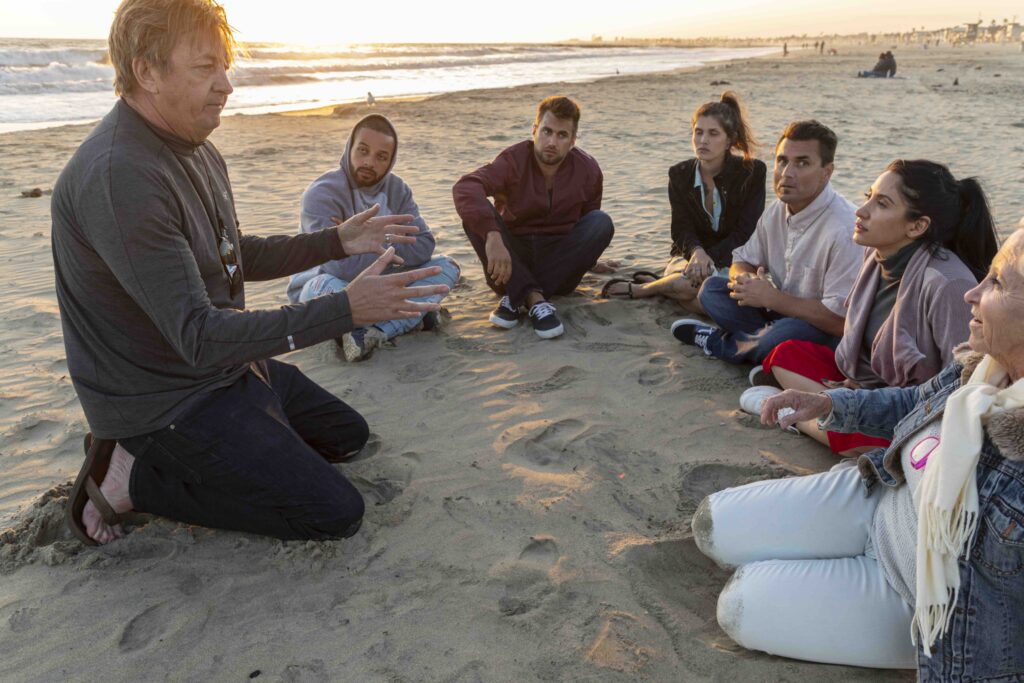
Research shows that approximately 50% of individuals with substance use disorders have co-occurring mental health conditions. This high rate of comorbidity requires an integrated treatment approach, as both conditions significantly impact each other. When mental health issues go untreated, substance abuse typically worsens, and conversely, substance use can exacerbate mental health problems.
Many individuals develop substance use problems while attempting to self-medicate symptoms of depression, anxiety, or trauma. Studies indicate that only 8.3% of adults with co-occurring disorders receive integrated treatment for both conditions
The most effective approach is concurrent treatment of both mental health and addiction by the same clinical team, which leads to better outcomes, reduced relapse rates, and improved long-term recovery success.

Research shows that addressing physical health and nutrition during substance use disorder treatment is crucial for recovery success. Poor nutrition and physical health issues can lead to treatment dropout and increased relapse risk, while improvements in physical health enhance motivation and quality of life during addiction treatment.
Substance use typically leads to nutrient deficiencies, damaged organs, decreased immunity, and poor eating patterns. These issues can threaten both physical and mental health, impacting vital organs and the nervous system. Additionally, different substances affect nutrition and metabolism differently – opioids impact gastrointestinal function, stimulants reduce appetite, and alcohol can cause severe nutritional deficiencies.
Treatment at Asana Recovery includes a nutritional assessment, balanced meals, and physical health monitoring to support healing and maintain long-term recovery.

Research shows that addressing spiritual health during substance use disorder treatment is a significant factor in recovery success. Studies indicate that spirituality can be approached through various pathways, including traditional 12-step programs like AA, secular programs like SMART Recovery, or holistic approaches that integrate mind, body, and spirit connections.
While AA emphasizes spiritual awakening as a key recovery mechanism, SMART Recovery offers a science-based alternative that allows individuals to incorporate their own spiritual beliefs as they see fit. Holistic approaches acknowledge that spiritual wellness, alongside physical and mental health, plays a vital role in comprehensive healing
Studies demonstrate that individuals who engage in spiritual practices during treatment show better outcomes, regardless of their chosen spiritual path. The key is providing options that respect individual beliefs.
A mental health disorder will almost always mean that you need long-term care and treatment to stay in recovery. At Asana Recovery, we understand that you should always have someone to talk to in case things go wrong. Mental health disorders will always mean that you will have bad days, you are more vulnerable to relapse, and you need ongoing mental healthcare and counseling. Asana Recovery can help you on this journey, offering support, ongoing counseling, and help finding local support groups.
Every aspect of dual diagnosis treatment has to be personalized to treat your specific mental health problems, as they impact you when you move into treatment and as you progress through treatment. At Asana Recovery, we take that seriously.


Partial Hospitalization Program (PHP) is an intensive outpatient treatment option that bridges the gap between inpatient care and traditional outpatient services. The program typically operates 5-7 days per week, with sessions lasting 4-6 hours daily, providing a minimum of 20 hours of weekly treatment.
During PHP, patients receive comprehensive care including individual therapy, group therapy, medication management, and psychiatric services while returning home each evening. This allows them to maintain daily responsibilities while receiving structured treatment. The program is ideal for individuals who have completed inpatient care, need more support than traditional outpatient treatment, or have a stable living environment but require intensive therapeutic intervention.
Intensive Outpatient Program (IOP) is a structured treatment option that bridges the gap between inpatient care and traditional outpatient services. The program typically provides 9-19 hours of weekly treatment while allowing clients to maintain their daily responsibilities like work, school, or family obligations.
IOP offers comprehensive care through various therapeutic interventions, including individual counseling, group therapy, family therapy, and psychoeducation sessions. Treatment focuses on substance use disorders, mental health conditions, or co-occurring disorders that don’t require 24-hour supervision or medical detoxification..

Start your recovery journey with us at Asana Recovery, where we prioritize your well-being and provide a welcoming environment for you to heal.
Begin your healing journey today. Fill out the confidential form to find out if your insurance covers you for treatment.
Group therapy is a form of psychotherapy where individuals facing similar challenges, particularly those related to addiction, come together to share their experiences and support one another. This therapeutic approach fosters a sense of community and belonging, which is crucial for individuals on the path to recovery. In a group setting, participants engage in discussions, share insights, and develop coping strategies under the guidance of a trained therapist. The collective nature of group therapy not only enhances individual healing but also reinforces the idea that no one has to face their struggles alone.
At Asana Recovery, group therapy is considered a cornerstone of the treatment programs offered. The organization recognizes the profound impact that shared experiences can have on recovery. By creating a nurturing environment where individuals can connect with others who understand their struggles, Asana Recovery emphasizes the importance of community support in fostering healing and personal growth. The structured group sessions are designed to encourage open communication and mutual understanding, allowing participants to learn from each other’s journeys.
The supportive atmosphere cultivated in these groups helps individuals feel less isolated and more empowered. Participants often find that sharing their challenges and triumphs with others who are experiencing similar issues can lead to significant breakthroughs in their recovery process. This sense of connection not only aids in reducing feelings of loneliness but also builds a network of accountability among peers.
The transformative power of group therapy lies in its ability to facilitate personal growth through shared learning and insight. Participants gain valuable perspectives from their peers, which can broaden their understanding of addiction and recovery. This exchange of ideas and coping strategies enhances each individual’s recovery journey, equipping them with practical tools to navigate the complexities of life post-addiction.
Moreover, the group dynamic fosters an environment where accountability thrives. Members encourage one another to stay committed to their recovery goals, reinforcing resilience and determination. As individuals share their successes and setbacks, they cultivate a sense of camaraderie that can be incredibly motivating.
In conclusion, group therapy plays an essential role in addiction recovery at Asana Recovery. By harnessing the power of shared experiences and community support, it provides individuals with a transformative platform for healing. The intimate connections formed within these groups not only enhance personal growth but also create a supportive network that can significantly impact long-term recovery outcomes.
Group therapy for addiction recovery is a structured form of psychotherapy where individuals facing similar substance use disorders come together to share their experiences, challenges, and successes in a supportive environment. This therapeutic approach is designed to foster mutual understanding and empathy among participants, allowing them to learn from one another while developing essential coping strategies. The primary purpose of group therapy is to create a sense of community that combats the feelings of isolation often associated with addiction, promoting healing through shared experiences and collective problem-solving.
Group therapy creates a unique shared space that encourages individuals to engage openly with one another. In this environment, participants can express their thoughts and feelings without fear of judgment, which is crucial for fostering vulnerability. As members share their personal stories, they validate each other’s experiences, reinforcing the understanding that they are not alone in their struggles. This communal aspect not only helps reduce feelings of shame but also cultivates a sense of belonging, which is vital for recovery.
In addition to emotional support, group therapy provides practical opportunities for individuals to practice recovery skills. Through structured activities such as discussions, role-playing, and skill-building exercises, participants can learn effective coping strategies from both their peers and the therapist. The collaborative nature of these sessions allows individuals to explore different perspectives on their challenges, enhancing their problem-solving abilities and emotional resilience.
Moreover, the dynamics within the group facilitate immediate feedback and support. As participants witness others navigating similar challenges and celebrating milestones, they gain inspiration and motivation for their own recovery journeys. This reciprocal learning process not only reinforces positive behaviors but also helps individuals develop essential life skills such as communication, emotional regulation, and interpersonal relationships.
Ultimately, group therapy serves as a powerful tool in addiction recovery by creating a nurturing environment where individuals can grow together. By sharing their journeys in a collective setting, participants build a supportive network that extends beyond the therapy sessions, fostering lasting connections that are crucial for sustained recovery.
Group therapy has emerged as a cornerstone in the treatment of addiction, offering a range of benefits that enhance the recovery process. This therapeutic approach not only addresses the individual’s struggles but also fosters a supportive community where shared experiences can lead to healing and growth.
One of the most significant advantages of group therapy is the peer support it provides. Individuals battling addiction often experience feelings of isolation and shame; however, in a group setting, they can connect with others who share similar struggles. This connection fosters an environment where participants feel understood and accepted, which is crucial for emotional healing. Sharing personal stories and challenges allows members to witness firsthand accounts of recovery, creating a sense of hope and motivation. The collective journey through addiction reinforces the idea that they are not alone, which can be incredibly empowering.
Group therapy is often more cost-effective than individual therapy. By allowing multiple individuals to receive treatment simultaneously, resources are utilized more efficiently. This approach not only reduces costs for treatment providers but also makes therapy more accessible for participants who may be financially constrained. While some studies suggest mixed findings regarding the overall cost-effectiveness of group therapy compared to individual sessions, many agree that group settings can provide comparable outcomes at a lower financial burden, making recovery more attainable for those in need.
Participating in group therapy exposes individuals to diverse perspectives on addiction and recovery. Members share various coping strategies and experiences, which can introduce new methods for managing triggers and cravings. This exchange of ideas enriches each participant’s toolkit for recovery, allowing them to adopt techniques that may resonate more personally with their own experiences. As they learn from one another, they also develop resilience and adaptability in facing their challenges.
Group therapy inherently encourages the development of communication skills. Participants must articulate their thoughts and feelings while also listening to others, fostering an environment of mutual respect and understanding. This practice not only enhances interpersonal skills but also promotes self-awareness. Individuals gain insights into their behaviors and thought patterns through feedback from peers, which is instrumental in personal growth. As they become more attuned to their emotions and reactions, they can better navigate social interactions both inside and outside the therapeutic setting.
Another critical benefit of group therapy is the opportunity it provides for practicing conflict resolution skills. In any group dynamic, differing opinions and personalities will inevitably lead to disagreements or misunderstandings. Group therapy offers a safe space for participants to engage in constructive dialogue about these conflicts, helping them learn how to resolve issues amicably. This experience not only strengthens their ability to handle interpersonal challenges but also prepares them for real-world situations where conflict may arise.
In conclusion, group therapy serves as a multifaceted approach to addiction recovery that encompasses emotional support, cost-effectiveness, skill development, and personal growth. By fostering a sense of community among participants, it helps dismantle feelings of isolation while equipping individuals with the tools necessary for sustained recovery. As more people recognize its benefits, group therapy continues to play an essential role in the journey toward healing from addiction.
Asana Recovery offers a diverse range of group therapy approaches designed to support individuals on their journey to recovery from addiction. Each type of therapy is tailored to meet the unique needs of clients, fostering an environment of healing, education, and personal growth.
Cognitive-Behavioral Therapy (CBT) is a cornerstone of Asana Recovery’s therapeutic offerings. This approach focuses on helping clients identify and reframe negative thought patterns that contribute to their addiction. Through structured group sessions, participants learn to recognize harmful beliefs and behaviors, enabling them to develop healthier coping mechanisms. The goal is to empower individuals to make positive changes in their thinking and actions, ultimately supporting their recovery journey.
Psychoeducational groups play a crucial role in educating participants about addiction and effective coping strategies. These sessions provide valuable information about the nature of substance use disorders, helping clients understand the psychological and physiological impacts of addiction. By combining knowledge sharing with peer support, participants can build essential skills for long-term recovery while fostering a sense of community among those facing similar challenges.
Skills development groups are designed to teach essential life skills that support long-term recovery. Participants engage in activities that enhance interpersonal skills, stress management techniques, and mindfulness practices. These sessions encourage individuals to actively participate in their recovery by learning practical strategies to manage cravings and prevent relapse. The collaborative nature of these groups allows members to share experiences and insights, enriching the learning process.
Support groups at Asana Recovery foster peer connections and mutual encouragement among participants. These groups create a safe space for individuals to share their experiences, challenges, and successes in recovery. By connecting with others who understand their struggles, clients can find comfort and motivation, reinforcing their commitment to sobriety. The supportive atmosphere helps reduce feelings of isolation and promotes accountability among group members.
Recognizing the importance of addressing the whole person in recovery, Asana Recovery incorporates holistic group therapy into its programs. This approach may include mindfulness practices, yoga sessions, and art therapy, all aimed at promoting emotional regulation and self-awareness. Holistic therapies encourage personal growth by allowing individuals to explore creative expression and develop a deeper understanding of themselves. This multifaceted approach enhances traditional therapeutic methods by addressing physical, mental, emotional, and spiritual well-being.
Asana Recovery distinguishes itself through its commitment to personalized care and tailored session goals. The therapist-to-client ratios are designed to ensure that each participant receives adequate attention and support throughout their treatment journey. This individualized approach allows therapists to adapt sessions based on the specific needs and progress of each client.
Additionally, Asana Recovery offers specialized tracks for various populations, including veterans and couples seeking recovery together. By addressing the unique challenges faced by these groups, Asana Recovery enhances the effectiveness of its programs.
In conclusion, Asana Recovery’s comprehensive group therapy offerings provide a supportive framework for individuals seeking recovery from addiction. By combining evidence-based practices with holistic approaches, clients are equipped with the tools necessary for lasting change and personal growth on their path to sobriety.
Group therapy is a powerful therapeutic approach that offers individuals a unique opportunity to connect with others facing similar challenges. This format not only fosters a sense of community but also enhances personal growth through shared experiences. In this blog post, we will explore the structure of a typical group therapy session, discuss the essential norms and expectations that govern these interactions, and differentiate between open and closed group formats.
A typical group therapy session is designed to create a safe and supportive environment for participants. Sessions usually consist of 5 to 15 members who meet regularly, often on a weekly basis. This regularity helps establish a rhythm and predictability that is crucial for participants’ comfort and engagement.
The physical setup of the session is often arranged in a circle, promoting face-to-face interaction and fostering an atmosphere of openness. The therapist or facilitator plays a vital role in guiding the session, introducing topics, and ensuring that each member feels heard. Sessions typically begin with check-ins, where members share their current feelings or experiences, followed by structured activities that may include discussions, role-playing, or skill-building exercises.
Activities are carefully curated to address specific themes or challenges relevant to the group. This structured approach not only facilitates deeper conversations but also encourages members to learn from one another’s perspectives.
Confidentiality is the cornerstone of effective group therapy. Participants must feel assured that what is shared within the group remains private. This assurance cultivates trust among members, allowing them to express their thoughts and emotions without fear of judgment or repercussions. Establishing clear guidelines about confidentiality at the outset is essential; participants are reminded that sharing details outside the group can undermine trust and hinder the therapeutic process.
In addition to confidentiality, several other norms are vital for fostering a productive group environment:
These norms help create an atmosphere conducive to healing and personal growth.
Group therapy can be conducted in either open or closed formats, each with distinct characteristics.
In an open group, new members can join at any time, which allows for ongoing dynamics and fresh perspectives. This format can be beneficial for individuals who may need immediate support or who prefer not to wait for a new session cycle.
Conversely, a closed group consists of a fixed number of participants who commit to attending all sessions together for a predetermined period. This stability fosters deeper relationships among members as they navigate their therapeutic journeys together. The closed format often leads to increased intimacy and trust as participants share their experiences over time.
In conclusion, group therapy is an enriching experience that combines structure with emotional support. By understanding its dynamics—session structure, essential norms, and different formats—individuals can better appreciate how this therapeutic approach can facilitate healing and personal growth. Whether in an open or closed setting, the power of shared experiences in group therapy can lead to profound transformations for its participants.
Group therapy has emerged as a vital component in the treatment of addiction, demonstrating significant effectiveness in promoting recovery. This therapeutic approach leverages the power of shared experiences, fostering a supportive environment where individuals can connect with others facing similar challenges. Research consistently supports the efficacy of group therapy in reducing relapse rates and improving overall treatment outcomes.
Numerous studies have highlighted the positive impact of group therapy on addiction recovery. For instance, research indicates that individuals participating in group therapy are more likely to remain committed to their recovery journey. The collaborative nature of group settings helps reduce feelings of isolation and shame, which are common among those battling addiction. Participants often report that witnessing the progress of peers provides motivation and hope, reinforcing their own recovery efforts.
A randomized clinical trial comparing individual and group cognitive-behavioral therapy found no significant differences in treatment outcomes between the two modalities. Both formats effectively addressed substance use disorders, suggesting that group therapy can be just as beneficial as individual therapy while potentially offering additional advantages such as cost-effectiveness and accessibility.
While both group and individual therapies play crucial roles in addiction treatment, they serve different purposes and cater to varying needs. Individual therapy offers personalized attention, allowing therapists to delve deeply into a patient’s unique experiences and underlying issues contributing to their addiction. This one-on-one approach is particularly effective for addressing personal traumas or mental health conditions that may not be as easily explored in a group setting.
On the other hand, group therapy provides a dynamic environment where participants can share insights and learn from one another’s experiences. This communal aspect fosters a sense of belonging and accountability, which can be incredibly empowering for individuals seeking recovery. The shared support among group members often leads to the development of new coping strategies and reinforces commitment to sobriety.
One of the standout advantages of group therapy is its cost-effectiveness. Treatment centers can accommodate more patients simultaneously in group sessions compared to individual sessions, making it a more efficient use of resources. This efficiency translates into lower costs for both providers and patients, making addiction treatment more accessible to a broader population.
Moreover, many individuals may find it easier to engage in group therapy due to its structured nature and scheduled sessions. This predictability can help those struggling with addiction better manage their time and commitments, ultimately enhancing their likelihood of attending sessions regularly.
In conclusion, group therapy has proven to be an effective tool in addiction recovery, supported by substantial evidence demonstrating its ability to reduce relapse rates and improve treatment outcomes. By fostering community support and providing cost-effective solutions, group therapy complements individual therapy, creating a holistic approach that addresses the multifaceted nature of addiction. As treatment modalities continue to evolve, integrating both forms of therapy will likely remain essential for comprehensive addiction care.
Group therapy can be a powerful tool for personal growth and healing, but it’s not the right fit for everyone. Understanding the dynamics, benefits, and potential drawbacks of group therapy is essential in determining if this therapeutic approach aligns with your needs.
Feeling shy or apprehensive about sharing personal experiences in a group setting is a common concern. Many individuals find it challenging to open up in front of others, especially when discussing sensitive topics. However, group therapy is designed to foster a supportive environment where participants can share at their own pace. Group members often find that hearing others’ stories can help them feel less isolated and more inclined to share their own experiences. Therapists typically encourage gradual participation, allowing members to contribute only when they feel comfortable.
Confidentiality is a cornerstone of effective group therapy. Participants are usually required to agree to confidentiality guidelines before joining the group, which helps create a safe space for sharing. While therapists are bound by ethical standards to protect client information, it’s important to recognize that individual members may not have the same legal obligations. Therefore, trust among group members is crucial; breaches of confidentiality can undermine the therapeutic process and make individuals hesitant to share openly. It’s essential to discuss privacy concerns with the therapist before starting group sessions.
Group therapy can be incredibly beneficial, but it may not address every individual’s needs comprehensively. Some people might require more personalized attention or specific therapeutic techniques that are better suited to individual therapy. If you find that your issues are particularly complex or deeply rooted, combining group therapy with individual sessions might be the most effective approach. A therapist can help evaluate your situation and recommend the best course of action.
While group therapy offers numerous advantages, there are scenarios where it may not be suitable. Individuals who struggle with severe anxiety or social phobia might find it overwhelming to participate in a group setting. Similarly, those who have experienced significant trauma may prefer one-on-one therapy to explore their feelings in a more private environment.
Additionally, if someone has interpersonal issues that lead to conflict within groups—such as dominating conversations or being overly critical—this could hinder both their progress and that of other participants. In such cases, individual therapy might provide a more focused and tailored approach.
Moreover, individuals who are highly introverted or have antisocial tendencies may feel uncomfortable in a group dynamic and could benefit more from personalized sessions where they can engage without the pressure of a collective audience.
In conclusion, while group therapy can be an effective means of support and healing for many individuals, it’s essential to consider personal comfort levels, privacy concerns, and specific therapeutic needs when deciding if it’s the right choice for you. Engaging in an open dialogue with a mental health professional can provide clarity on whether group therapy aligns with your personal journey toward wellness.
At Asana Recovery, group therapy is not just a component of our treatment; it is a cornerstone that enhances the recovery journey for individuals battling addiction. Our approach to group therapy is distinguished by several key features that foster a supportive and healing environment.
One of the defining aspects of group therapy at Asana Recovery is our commitment to personalized treatment plans. We recognize that each individual’s journey through addiction is unique, which is why we develop tailored programs that incorporate group therapy as a fundamental element. These personalized plans are designed to meet the specific needs of each client, ensuring that they receive the support and guidance necessary for their recovery. By integrating group therapy into these individualized plans, clients benefit from shared experiences and collective healing, which can be incredibly powerful in overcoming addiction.
The expertise of our therapists plays a crucial role in the effectiveness of group therapy at Asana Recovery. Our team consists of highly trained professionals who specialize in addiction treatment and mental health support. They guide group sessions with compassion and insight, helping participants navigate their challenges while fostering an atmosphere of trust and openness. This expert guidance ensures that clients not only share their experiences but also learn valuable coping strategies from both their peers and therapists. The combination of professional support and shared understanding creates a rich learning environment where individuals can grow and heal together.
At Asana Recovery, we believe in a holistic approach to treatment that goes beyond traditional therapy methods. Group therapy is seamlessly integrated with other modalities such as yoga and mindfulness practices. This holistic integration allows clients to explore various avenues for healing, addressing not just the psychological aspects of addiction but also the physical and spiritual dimensions. For instance, yoga sessions complement group discussions by promoting relaxation and self-awareness, which are essential for recovery. Mindfulness practices further enhance this experience by helping clients stay grounded in the present moment, reducing anxiety and fostering emotional resilience.
Located in beautiful Costa Mesa, Orange County, Asana Recovery offers specialized programs that cater to the unique needs of our community. Our location allows us to draw on the vibrant culture and natural beauty of California, enhancing the recovery experience for our clients. We provide various treatment tracks tailored for specific populations, including veterans and couples, ensuring that all individuals receive care that resonates with their personal experiences. This California focus not only enriches our therapeutic offerings but also fosters a sense of belonging among clients who share similar backgrounds and challenges.
In conclusion, group therapy at Asana Recovery stands out due to its personalized programs, expert guidance, holistic integration, and California-focused approach. By fostering a supportive community where individuals can connect and grow together, we empower our clients to embark on their recovery journey with confidence and resilience.

Embarking on the journey of recovery can be daunting, but group therapy at Asana Recovery offers a supportive and structured environment to facilitate healing. Here’s a comprehensive guide on how to get started with group therapy at this facility.
The first step in the process is scheduling an initial consultation. This session is crucial as it allows the therapists to understand your specific needs and circumstances. During the consultation, you will engage in a discussion about your history, challenges, and goals for recovery. Typically lasting around 45 minutes, this session may take place in person or via a virtual platform, depending on your preference. You will also complete intake paperwork that helps the counselors gather essential information about your situation.
After your initial assessment, the next step involves matching you with the appropriate group. This is a critical phase as it ensures that you are placed in a setting that aligns with your recovery goals and personal characteristics. Asana Recovery employs a thoughtful selection process that considers various factors such as your individual needs, preferences, and stage of recovery. This tailored approach increases the likelihood of positive outcomes by fostering a sense of belonging and support within the group dynamic.
Understanding the financial aspects of treatment is vital for many individuals seeking help. Asana Recovery provides detailed information regarding insurance coverage and affordability options during the initial consultation. They accept various insurance plans and offer assistance in navigating financial responsibilities associated with treatment. This transparency helps alleviate concerns about costs, allowing you to focus more on your recovery journey.
To begin your path toward recovery through group therapy at Asana Recovery, follow these actionable steps:
California, with its cultural diversity and progressive stance on mental health, offers a unique landscape for addiction recovery. Asana Recovery, located in Orange County, exemplifies this approach by providing expert-led group therapy programs designed to meet the varied needs of Californians. These programs integrate evidence-based practices such as Cognitive Behavioral Therapy (CBT) and psychoeducational groups, ensuring that individuals receive scientifically validated care.
Group therapy at Asana Recovery fosters a supportive environment where participants can share experiences, develop coping skills, and build a sense of community that is essential for long-term recovery.
The inclusion of psychoeducational groups helps clients understand the complexities of addiction while equipping them with practical tools for recovery. Meanwhile, CBT addresses the underlying thought patterns and behaviors contributing to substance use. This multifaceted approach ensures that treatment is not only effective but also tailored to the diverse cultural and personal backgrounds of Californians.
California faces unique challenges when it comes to addiction recovery. The high-stress environment of urban centers, coupled with the state’s cultural diversity, creates a complex backdrop for treatment. Asana Recovery recognizes these factors and incorporates them into its group therapy programs. For example, the facility emphasizes cultural competence in its therapeutic practices, ensuring that clients from various backgrounds feel understood and supported.
Additionally, California’s progressive stance on mental health aligns seamlessly with Asana Recovery’s holistic approach. The center not only addresses addiction but also focuses on co-occurring mental health conditions through integrated care. By combining medical interventions with therapeutic support, Asana Recovery mirrors the state’s commitment to innovative and inclusive treatment solutions.
Evidence-based group therapy is central to Asana Recovery’s philosophy. This approach ensures that clients benefit from interventions proven effective through scientific research. Techniques such as CBT and Dialectical Behavior Therapy (DBT) are complemented by holistic methods like yoga and art therapy, creating a well-rounded treatment experience. These therapies address both the psychological and emotional dimensions of addiction, fostering personal growth and resilience.
Research underscores the effectiveness of group therapy in addiction recovery. Studies have shown that group settings not only reduce feelings of isolation but also enhance accountability and social support among participants. By leveraging these benefits, Asana Recovery maximizes the potential for long-term success in sobriety.
Addiction remains a significant issue in California, affecting individuals across all demographics. Asana Recovery plays a vital role in addressing this crisis by offering innovative solutions tailored to the state’s needs. The center’s group therapy programs provide a cost-effective way to deliver high-quality care to multiple individuals simultaneously, making treatment more accessible.
Moreover, Asana Recovery’s emphasis on community-building within group therapy helps combat the isolation often associated with addiction. Clients are encouraged to connect with peers who share similar struggles, creating a network of support that extends beyond the duration of treatment.
Asana Recovery exemplifies California’s forward-thinking approach to addiction recovery through its commitment to evidence-based practices and holistic care. By addressing the unique challenges faced by Californians—such as stress and cultural diversity—the center provides a model for effective and inclusive treatment. Through expert-led group therapy sessions that foster understanding, accountability, and personal growth, Asana Recovery continues to make a meaningful impact on individuals seeking freedom from addiction in California.
In the vibrant landscape of addiction recovery, Asana Recovery stands out as a leading facility in Orange County, California. Renowned for its compassionate approach and evidence-based treatment methods, Asana Recovery provides a comprehensive support system for individuals grappling with substance use disorders. The facility emphasizes the importance of group therapy, which plays a pivotal role in fostering healing and connection among participants.
Group therapy sessions at Asana Recovery are designed to create a safe and nurturing environment where individuals can share their experiences and challenges with others facing similar struggles. This communal atmosphere not only alleviates feelings of isolation but also cultivates a sense of belonging among participants. By engaging in open discussions, clients learn from one another, gaining insights that can significantly enhance their recovery journey. The diversity within these groups reflects the rich tapestry of Orange County’s community, allowing participants to connect with people from various backgrounds and experiences.
The benefits of group therapy extend beyond mere emotional support; they also include the development of essential interpersonal skills. Participants learn to communicate effectively, practice empathy, and build trust—skills that are crucial for long-term recovery. As they navigate their individual journeys alongside peers, clients often find motivation and encouragement to pursue their goals, celebrating each other’s milestones along the way. This shared experience fosters a unique bond that can be incredibly empowering.
Moreover, Asana Recovery’s commitment to personalized treatment plans ensures that each participant receives tailored care that addresses their specific needs. The integration of various therapeutic modalities, such as Cognitive Behavioral Therapy (CBT) and Dialectical Behavior Therapy (DBT), within group settings allows clients to explore different approaches to recovery. This flexibility helps individuals discover what resonates most with them, enhancing their overall therapeutic experience.
Asana Recovery’s reputation as a leader in addiction treatment is further solidified by its focus on creating a supportive community atmosphere through group therapy. By encouraging vulnerability and openness, clients can confront their challenges without fear of judgment. This process not only aids in breaking down barriers but also empowers individuals to embrace their recovery journey with renewed hope and determination.
In conclusion, group therapy at Asana Recovery offers a transformative experience for those seeking healing from addiction in Orange County. By fostering connections among participants and providing a structured yet compassionate environment, Asana Recovery helps individuals navigate the complexities of recovery while building lasting relationships within the community. As they heal together, clients emerge stronger and more resilient, ready to embrace a brighter future free from addiction.
In Fountain Valley, Asana Recovery stands out as a beacon of hope for individuals grappling with addiction. The center is dedicated to delivering compassionate care through structured group therapy programs that not only address the immediate challenges of substance use but also foster long-term recovery. These programs are designed to help individuals reconnect with their communities and loved ones, while simultaneously building essential life skills necessary for sustained sobriety.
Asana Recovery employs a variety of therapeutic techniques within its group sessions, including Cognitive Behavioral Therapy (CBT), psychoeducational groups, and interpersonal therapy. CBT is particularly effective as it equips individuals with practical tools to identify and challenge negative thought patterns that often lead to addictive behaviors. This structured approach allows participants to develop coping strategies and problem-solving skills, which are crucial for managing stress and avoiding relapse. By focusing on behavioral modification and enhancing self-awareness, CBT empowers individuals to replace harmful habits with healthier alternatives.
Psychoeducational groups play a vital role in the recovery process by providing participants with information about addiction and its effects. These sessions help demystify the recovery journey, enabling individuals to understand their experiences better and learn from one another. Interpersonal therapy further enriches the therapeutic experience by focusing on improving communication skills and building healthier relationships, which are essential for a supportive recovery environment.
Fountain Valley is known for its family-oriented community, and Asana Recovery recognizes the importance of family involvement in the healing process. The center actively encourages family participation in group therapy sessions, understanding that a supportive home environment can significantly enhance treatment outcomes. Family therapy is integrated into the recovery programs, allowing loved ones to engage in discussions about addiction’s impact on their relationships while learning how to support each other effectively.
Research indicates that strong family support can increase the likelihood of completing treatment by up to 50%. By involving family members in therapy, Asana Recovery fosters a collaborative atmosphere where both patients and their families can address underlying issues related to addiction. This shared experience not only strengthens familial bonds but also promotes empathy and understanding among all participants.
Asana Recovery’s commitment to compassionate care is evident in its holistic approach, which combines evidence-based therapies with opportunities for personal growth and community reintegration. By focusing on both individual healing and family dynamics, Asana Recovery provides a comprehensive support system that empowers individuals in Fountain Valley to reclaim their lives from addiction and build a brighter future together.
Huntington Beach, with its stunning coastal views and serene environment, serves as an ideal backdrop for healing and self-discovery, particularly in the realm of addiction recovery. The natural beauty of the area not only enhances the therapeutic experience but also promotes a sense of peace and tranquility that is essential for individuals seeking to overcome addiction. Asana Recovery, a prominent facility in the region, leverages this unique setting to facilitate group therapy sessions that foster connection and personal growth.
At Asana Recovery, group therapy is more than just a treatment method; it is a cornerstone of the recovery process. Participants are encouraged to share their experiences in a supportive environment, where they can learn from one another and develop coping strategies that are crucial for long-term sobriety. The intimate nature of these sessions allows individuals to realize they are not alone in their struggles, fostering a sense of community that is vital for healing. This shared understanding helps participants feel truly connected, which can significantly enhance their recovery journey.
Incorporating mindfulness and holistic therapies into these group sessions aligns perfectly with Huntington Beach’s wellness-focused culture. Techniques such as mindfulness meditation, yoga, and other holistic practices are integrated into the therapy framework, addressing not just the addiction itself but also the underlying emotional and spiritual issues that often accompany substance use disorders. This comprehensive approach recognizes the interconnectedness of mind, body, and spirit, promoting overall well-being and resilience.
The coastal environment of Huntington Beach further enriches this recovery experience. The proximity to nature encourages outdoor activities that can be therapeutic in themselves. Asana Recovery takes advantage of this by offering various recreational activities such as hiking and beach outings, which not only provide physical benefits but also enhance mental clarity and emotional stability. These experiences allow participants to reconnect with themselves and the world around them, reinforcing their commitment to recovery.
Huntington Beach’s reputation as a destination for wellness retreats underscores the unique recovery experience offered by Asana Recovery. The combination of professional therapeutic support with the calming influence of nature creates an exceptional environment for those on their healing journey. By emphasizing community support, shared learning, and holistic practices within this beautiful coastal setting, Asana Recovery provides individuals with the tools they need to reclaim their lives and foster lasting change.
Group therapy at Asana Recovery offers a safe, supportive environment where you can connect with others facing similar challenges, learn essential coping strategies, and build a community committed to growth and healing. Whether you’re in California, Orange County, Costa Mesa, Fountain Valley, or Huntington Beach, our evidence-based and holistic programs are tailored to meet your unique needs. Guided by experienced professionals, these sessions provide the tools and encouragement you need to overcome addiction and rediscover your strength.
At Asana Recovery, we believe in the transformative power of shared experiences. Our group therapy programs are designed to foster connection, resilience, and lasting recovery. From evidence-based practices like Cognitive Behavioral Therapy (CBT) to holistic approaches such as mindfulness and art therapy, we provide comprehensive support for every stage of your journey. Located in serene and accessible settings across Southern California, Asana Recovery is here to guide you toward a brighter future.

Asana Recovery embraces California’s cultural diversity by offering group therapy programs that are both inclusive and individualized. The center begins with a detailed assessment to understand each client’s unique background, including cultural, emotional, and social factors that influence their recovery journey. This information is used to craft personalized treatment plans that integrate evidence-based practices like Cognitive Behavioral Therapy (CBT) and Dialectical Behavior Therapy (DBT), along with holistic approaches such as yoga and mindfulness.
Recognizing the diverse needs of Californians, Asana Recovery offers specialized group tracks, such as those for veterans, LGBTQ+ individuals, and people with co-occurring mental health disorders. These tailored programs ensure that every participant feels supported in a culturally competent environment, allowing for meaningful connections and collective healing. Additionally, group therapy sessions often include culturally relevant topics, fostering an atmosphere where participants from all walks of life feel heard and valued.
Asana Recovery incorporates a variety of evidence-based approaches in its group therapy sessions, ensuring that participants receive scientifically validated care. Cognitive Behavioral Therapy (CBT) helps individuals identify and alter negative thought patterns that contribute to addiction. Dialectical Behavior Therapy (DBT), particularly beneficial for those with emotional regulation issues, teaches mindfulness, distress tolerance, and interpersonal effectiveness.
The center also utilizes Relapse Prevention Therapy, which equips participants with practical strategies to manage triggers and high-risk situations. For individuals with trauma histories, Eye Movement Desensitization and Reprocessing (EMDR) is integrated into group settings, addressing deep-seated emotional wounds. Combined with skills development and psychoeducational sessions, these approaches help participants gain tools for sustainable recovery while fostering mutual support within the group.
Asana Recovery mirrors California’s progressive approach to mental health by prioritizing comprehensive, client-centered care. The facility integrates cutting-edge therapies, such as virtual reality-assisted exposure therapy and holistic modalities, with traditional practices like CBT and DBT. This dual focus reflects the state’s emphasis on innovation and inclusivity in mental health treatment.
The center also champions the biopsychosocial model, addressing the biological, psychological, and social dimensions of addiction. By offering specialized tracks for co-occurring disorders, Asana Recovery ensures that mental health challenges are treated alongside substance use disorders. Its holistic therapies, including mindfulness, yoga, and art therapy, align with California’s wellness culture, promoting overall well-being and resilience in recovery.
Asana Recovery stands out with its innovative solutions for addiction treatment, combining evidence-based methods with holistic practices. The facility offers teletherapy options, making recovery accessible to individuals across the state, especially in underserved areas. Virtual reality therapy is another cutting-edge tool used to simulate triggers in a safe environment, allowing clients to build resilience and coping strategies.
The center’s flexible outpatient programs, such as Partial Hospitalization (PHP) and Intensive Outpatient (IOP), cater to individuals with varying levels of need and responsibilities. Holistic therapies like equine therapy, art therapy, and outdoor activities harness California’s natural environment, enhancing emotional and physical recovery. Asana Recovery’s commitment to tailored care ensures that each client receives innovative, individualized support throughout their journey.
California’s fast-paced lifestyle and cultural diversity significantly shape the group therapy experience at Asana Recovery. High stress levels common in urban environments are addressed through mindfulness practices and stress management techniques integrated into therapy sessions. Group discussions often center around managing workplace stress or family pressures, providing practical tools for participants to navigate daily challenges.
Cultural diversity enriches the group dynamic, allowing participants to gain insights from a wide range of perspectives. Therapists at Asana Recovery are trained in cultural competency, ensuring that individuals feel respected and understood regardless of their background. This inclusive approach fosters deeper connections and a sense of community, which are critical for overcoming addiction and isolation.
Group therapy at Asana Recovery is distinguished by its commitment to small group sizes, personalized care, and a holistic framework. With a maximum of six participants per group, clients receive more focused attention and the opportunity to form deeper bonds. Sessions are led by licensed therapists skilled in addiction recovery and mental health, ensuring high-quality guidance.
Unlike many centers, Asana Recovery integrates family therapy into group sessions, recognizing the role of family dynamics in recovery. Additionally, holistic practices like yoga and art therapy complement evidence-based methods, addressing the emotional and spiritual dimensions of healing. This combination of personalized, innovative, and community-focused care sets Asana Recovery apart.
Group therapy is instrumental in reducing isolation by creating a community where participants share their experiences and support one another. At Asana Recovery, group settings are designed to foster connection and empathy. Participants often discover commonalities in their struggles, helping them feel understood and validated.
The communal environment encourages accountability and mutual encouragement, motivating individuals to stay committed to their recovery. Sharing successes and setbacks in a supportive space builds trust and combats loneliness. Over time, participants develop lasting relationships that extend beyond therapy, providing an ongoing network of support.
Asana Recovery ensures an optimal group therapy match through thorough initial assessments. These evaluations consider factors such as the client’s recovery goals, mental health history, and personal preferences. Based on this information, clients are placed in groups that align with their specific needs, ensuring compatibility and a supportive dynamic.
Specialized groups, such as those for trauma survivors or individuals with co-occurring disorders, offer targeted support. Therapists continuously monitor group dynamics to ensure that each participant feels valued and engaged. This tailored approach maximizes the therapeutic benefits of group therapy while fostering a positive environment.
Huntington Beach’s serene coastal environment and wellness-driven community provide an ideal setting for recovery. Asana Recovery leverages this atmosphere by incorporating outdoor activities like beach walks, yoga, and hiking into group therapy. These experiences promote relaxation, mindfulness, and physical well-being, essential components of holistic recovery.
The community-oriented culture of Huntington Beach aligns with Asana Recovery’s emphasis on connection and support. Clients benefit from a network of like-minded individuals, fostering a sense of belonging and shared purpose. This combination of natural beauty and community engagement enhances the overall recovery experience, inspiring clients to embrace a healthier, addiction-free lifestyle.

Asana Recovery
We firmly believe that the internet should be available and accessible to anyone, and are committed to providing a website that is accessible to the widest possible audience, regardless of circumstance and ability.
To fulfill this, we aim to adhere as strictly as possible to the World Wide Web Consortium’s (W3C) Web Content Accessibility Guidelines 2.1 (WCAG 2.1) at the AA level. These guidelines explain how to make web content accessible to people with a wide array of disabilities. Complying with those guidelines helps us ensure that the website is accessible to all people: blind people, people with motor impairments, visual impairment, cognitive disabilities, and more.
This website utilizes various technologies that are meant to make it as accessible as possible at all times. We utilize an accessibility interface that allows persons with specific disabilities to adjust the website’s UI (user interface) and design it to their personal needs.
Additionally, the website utilizes an AI-based application that runs in the background and optimizes its accessibility level constantly. This application remediates the website’s HTML, adapts Its functionality and behavior for screen-readers used by the blind users, and for keyboard functions used by individuals with motor impairments.
If you’ve found a malfunction or have ideas for improvement, we’ll be happy to hear from you. You can reach out to the website’s operators by using the following email
Our website implements the ARIA attributes (Accessible Rich Internet Applications) technique, alongside various different behavioral changes, to ensure blind users visiting with screen-readers are able to read, comprehend, and enjoy the website’s functions. As soon as a user with a screen-reader enters your site, they immediately receive a prompt to enter the Screen-Reader Profile so they can browse and operate your site effectively. Here’s how our website covers some of the most important screen-reader requirements, alongside console screenshots of code examples:
Screen-reader optimization: we run a background process that learns the website’s components from top to bottom, to ensure ongoing compliance even when updating the website. In this process, we provide screen-readers with meaningful data using the ARIA set of attributes. For example, we provide accurate form labels; descriptions for actionable icons (social media icons, search icons, cart icons, etc.); validation guidance for form inputs; element roles such as buttons, menus, modal dialogues (popups), and others. Additionally, the background process scans all the website’s images and provides an accurate and meaningful image-object-recognition-based description as an ALT (alternate text) tag for images that are not described. It will also extract texts that are embedded within the image, using an OCR (optical character recognition) technology. To turn on screen-reader adjustments at any time, users need only to press the Alt+1 keyboard combination. Screen-reader users also get automatic announcements to turn the Screen-reader mode on as soon as they enter the website.
These adjustments are compatible with all popular screen readers, including JAWS and NVDA.
Keyboard navigation optimization: The background process also adjusts the website’s HTML, and adds various behaviors using JavaScript code to make the website operable by the keyboard. This includes the ability to navigate the website using the Tab and Shift+Tab keys, operate dropdowns with the arrow keys, close them with Esc, trigger buttons and links using the Enter key, navigate between radio and checkbox elements using the arrow keys, and fill them in with the Spacebar or Enter key.Additionally, keyboard users will find quick-navigation and content-skip menus, available at any time by clicking Alt+1, or as the first elements of the site while navigating with the keyboard. The background process also handles triggered popups by moving the keyboard focus towards them as soon as they appear, and not allow the focus drift outside it.
Users can also use shortcuts such as “M” (menus), “H” (headings), “F” (forms), “B” (buttons), and “G” (graphics) to jump to specific elements.
We aim to support the widest array of browsers and assistive technologies as possible, so our users can choose the best fitting tools for them, with as few limitations as possible. Therefore, we have worked very hard to be able to support all major systems that comprise over 95% of the user market share including Google Chrome, Mozilla Firefox, Apple Safari, Opera and Microsoft Edge, JAWS and NVDA (screen readers).
Despite our very best efforts to allow anybody to adjust the website to their needs. There may still be pages or sections that are not fully accessible, are in the process of becoming accessible, or are lacking an adequate technological solution to make them accessible. Still, we are continually improving our accessibility, adding, updating and improving its options and features, and developing and adopting new technologies. All this is meant to reach the optimal level of accessibility, following technological advancements. For any assistance, please reach out to